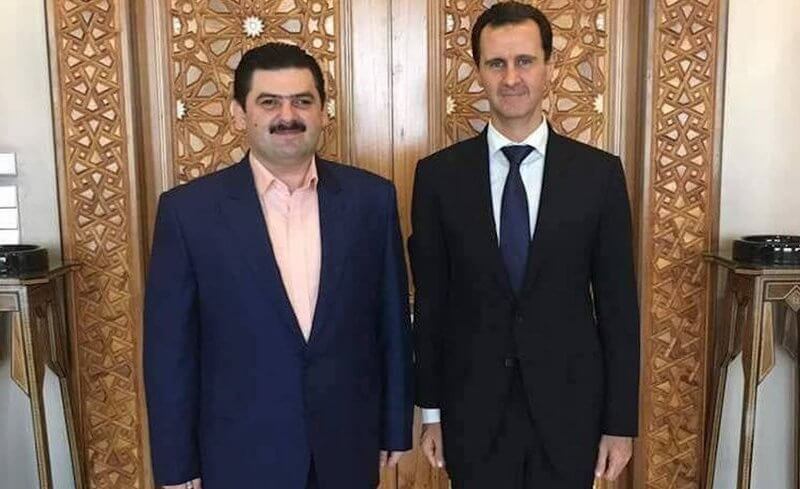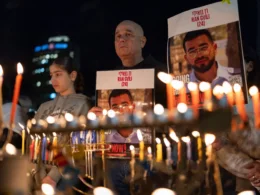Beirut, Lebanon — A prominent Syrian businessman with close ties to President Bashar al-Assad was killed near the Lebanese-Syrian border on Monday, in what security sources describe as a suspected Israeli strike. Baraa Katerji, well-known for his financial involvement with the Islamic Republic's proxies, reportedly died instantly in the attack.
For years, Israel has conducted numerous strikes targeting Iran regime-linked assets in Syria. These attacks have surged recently due to the ongoing Gaza conflict and clashes with Hezbollah along the Lebanon-Israel border.
However, conflicting reports have emerged regarding the cause of Katerji's death. Al Arabiya cited a security source suggesting that an improvised explosive device (IED), rather than an Israeli airstrike, was responsible for the killing.
Katerji, an influential figure in Syria's economic landscape, played a crucial role in funding operations for Iran's IRGC Quds Force and its proxies, including Hezbollah, according to Al Arabiya. His assassination occurred while traveling in his SUV on the highway connecting Lebanon and Syria, an official from an Iran-backed group told the Associated Press.
Rami Abdulrahman, director of the Syrian Observatory for Human Rights (SOHR), speculated that Katerji might have been targeted for financing Syrian resistance against Israel in the Golan Heights and maintaining links with Iran-backed groups in Syria. Abdulrahman further noted that the precision of the attack suggests a significant security breach either within Hezbollah or Assad's inner circle, pointing to leaked sensitive information potentially reaching Israeli intelligence.
Katerji's business activities and his extensive empire, managed with his brother, have not gone unnoticed by international authorities. The United States has imposed sanctions against the Katerji brothers for "facilitating petroleum shipments and financing to the Syrian regime," according to the US Treasury. Similarly, the UK Treasury's Office of Financial Sanctions Implementation has sanctioned them for "facilitating fuel, arms, and ammunition trade between the regime and various actors, including ISIS (Daesh), under the guise of importing and exporting food items."
The assassination of Baraa Katerji underscores the volatile nature of regional conflicts and the intricate web of alliances and enmities shaping the Middle East's geopolitical landscape.









